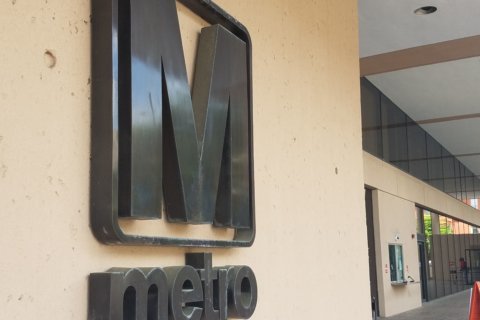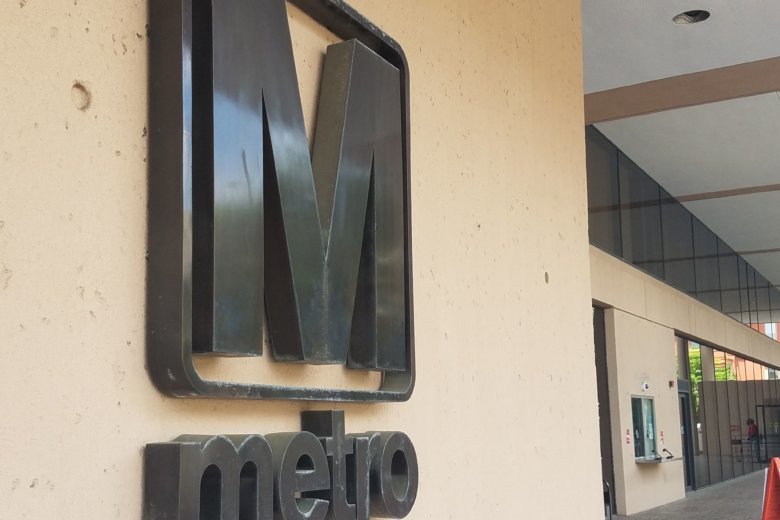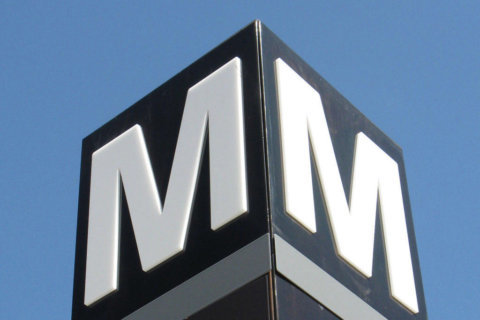
WASHINGTON — Intense public pressure led the Metro Board to back down from a plan to scrap the Riders’ Advisory Council on Thursday.
Metro Board Chairman Jack Evans pulled a vote to end the council from the board’s agenda at the start of its meeting.
Arlington Metro Board Member Christian Dorsey said the council, known as the RAC, would continue to exist under revised policies and bylaws that are due to be adopted next month. Dorsey was one of few board members to support keeping the council prior to the outside pressure.
“We’re talking about a transit agency that relies on riders to be efficient and successful, and here we are with an action that seems contrary to engaging riders in a constructive way,” Dorsey said. “It seems bizarre for where Metro is.”
If Metro had a better history of being responsive to riders, Dorsey does not think this proposal would have drawn such strong reactions.
“Just made no sense, and I think everybody looking at it from the outside came to the same conclusion,” Dorsey said.
The council’s chair, Katherine Kortum, said she didn’t know the board stopped its plan to eliminate the RAC until she arrived at Metro headquarters on Thursday, where she planned to plead the board to save the council one more time.
“I currently have ‘Stayin’ Alive’ stuck in my head right now,” she told the board.
Local and federal leaders had written to the Metro Board to support the council, which the board had planned to replace with online surveys. The surveys would be sent to selected members of a pool of about 3,000 people who signed up for them through the agency’s “Amplify” platform.
Evans said he sees the online surveys as potentially more representative than the members of the RAC, who are appointed by the Metro Board.
“We get a lot of input constantly about Metro. It’s not that we’re oblivious to what’s going on around here,” Evans said.
“I am so pleased at the enthusiasm by the members of Congress and the various jurisdictions, and one of the things we’re going to ask you all to do is to help us get them to share some of that same enthusiasm for some of the bigger issues we’re facing at Metro,” Evans told the members of the RAC who spoke during public comment on Thursday.
Kortum said the limited surveys, and public hearings at times or locations difficult for many people to access, are what makes input from the council crucial.
Only about four people showed up to a hearing on Tuesday about charging weekend parking fees and potentially charging more to ride on some weekends or holidays during events like the Cherry Blossom Festival or July 4th.
Metro is making other significant decisions at this time.
“Everything from parking fees to special event fares to concession sales within the system, changes to the Rush Hour Promise, the 8000 Series trains, there’s a whole lot of different issues that all directly effect riders and we think that WMATA staff are very capable of making a lot of these decisions, but integrating rider feedback will definitely make every one of those decisions a better one,” Kortum said.
Kortum raised concerns about federal board member Steve McMillin’s belief that running more trains outside of rush hour to bring back more riders would be crazy, given the financial constraints of limited local tax dollars.
“I don’t believe that more off-peak trains are the most efficient use of that subsidy, which is finite,” McMillin responded.
RAC Changes
Revisions to the RAC now expected to be adopted next month include a reduction in meetings to reduce Metro staff time devoted to the council and a promise from the Metro Board to give more direction about what topics it would like input on.
The changes will shrink the council to 11 members. While it currently has 21 seats, nearly half of those are open, so no current volunteers are expected to be kicked off the council.
Rebekah Mason, a Montgomery County member of the council, said she and her colleagues give their time to the region to improve Metro and improve access to transit for the region.
“We are invested to make sure that WMATA can rise to the occasion. We don’t want WMATA just to be ‘back to good’, we want it to be the system we all truly deserve in this region,” Mason said.














